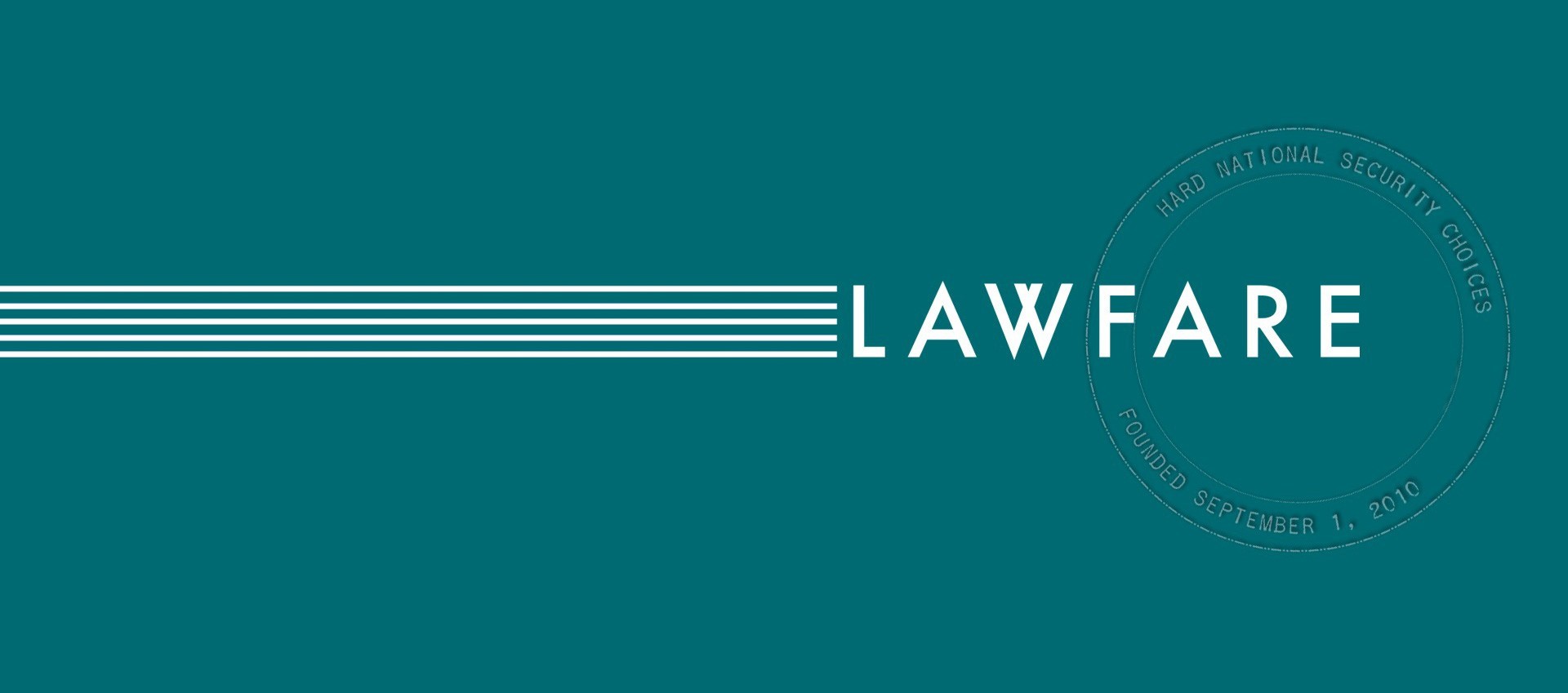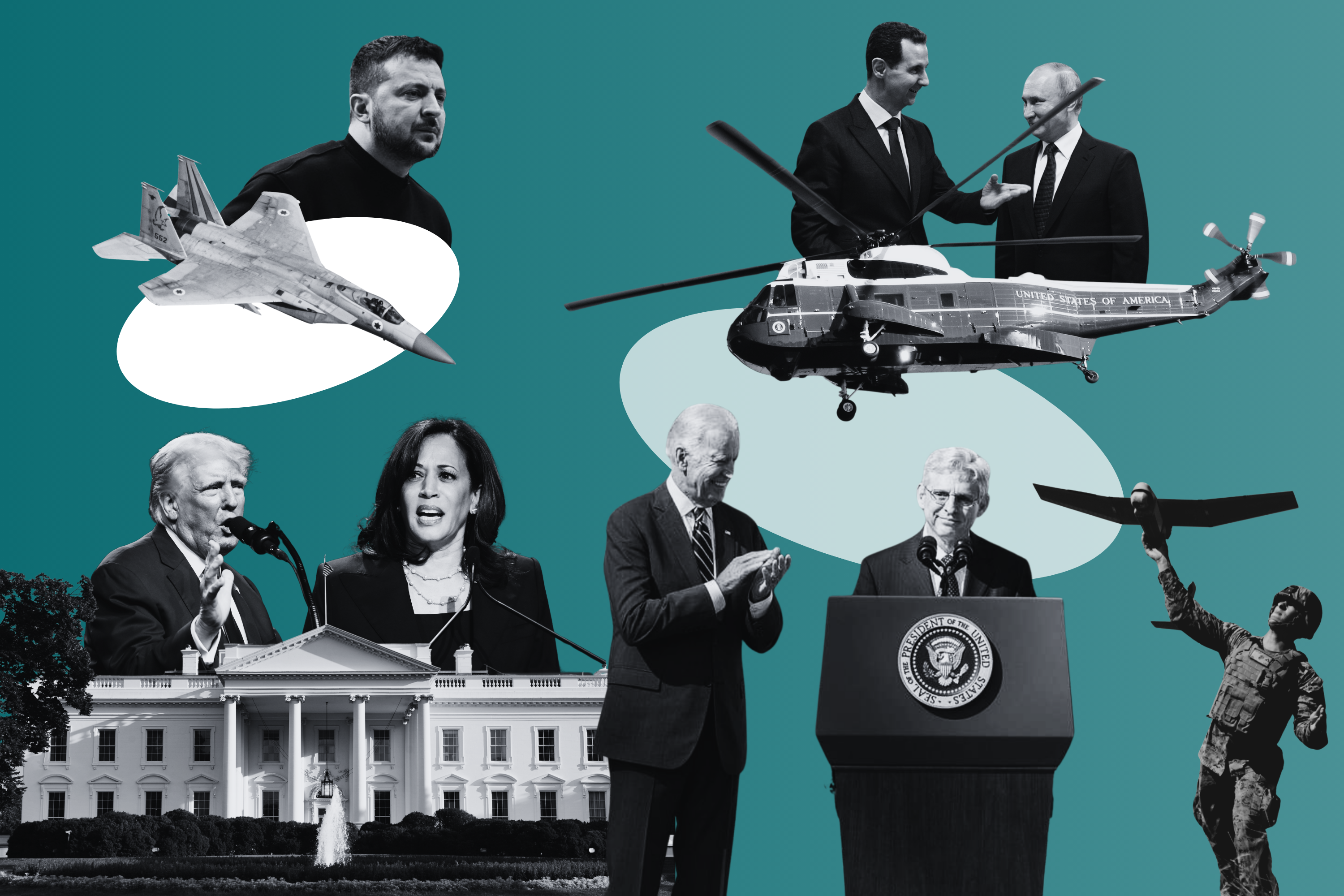The Week that Was: All of Lawfare in One Post
Published by The Lawfare Institute
in Cooperation With

In Russia investigation news, Helen Murillo and Benjamin Wittes analyzed whether an FBI investigation counts as a “pending proceeding” for the purpose of obstruction of justice laws. Aditya Bamzai wrote about the special counsel’s role in conducting counterintelligence investigations. Susan Hennessey describes the relative importance of continuing Russia-related leaks from the administration. Nora Ellingsen wrote about how rank-and-file FBI personnel are handling the firing of James Comey. Susan Landau posted on how Russia uses cyberattacks to undermine civil society—domestically and abroad.
Former White House Counsel Robert Bauer joined Ben for the Lawfare Podcast to discuss the role of the White House Counsel:
Bauer wrote separately on how President Trump’s retention of private counsel may change his attitude towards governing and investigations. Carrie Cordero, Susan, and Ben also recorded a special edition of the Lawfare Podcast to address reports that Jared Kushner tried to establish a back-channel with Russia during the transition period.
Carrie explained how we should understand the Kushner backchannel issue in a separate piece.
Meanwhile, on Rational Security, the gang discussed the President's foreign trip and his coinage of the important new word "covfefe"—and they unveiled their new picture.
In other news, Alice Hill underscored the catastrophic dangers of inaction on climate change in the wake of the U.S. withdrawal from the Paris Agreement. David Wirth explained how the binding provisions of the accord may keep parts of the treaty in effect until after the 2020 presidential election. Alice Hill, writing with Laura S.H. Holgate, also wrote about the intersection of climate change and nuclear security, noting that climate-conscious countries that turn to nuclear energy supplies may increase the risk of proliferation by doing so. And Adam White analyzed what the Trump administration may believe it gains by withdrawing from the accord.
In travel ban litigation news, Andrew Kent explained what a Supreme Court case from the Civil War has to do with the Fourth Circuit's decision in IRAP. Josh Blackman posted three different articles on the ruling in IRAP covering a range of related topics. Quinta wrote about how judges may be viewing the Trump presidency differently than others based on the IRAP ruling, and noted that the government is seeking cert in IRAP.
Adrian Vermeule wrote about how the Article III judges that President Trump selects may view the legal landscape and what cannons of interpretation they might adopt.
In counterterrorism news, Benjamin Wittes, Jack Goldsmith, Bobby Chesney, and Matthew Waxman analyzed the Flake-Kaine AUMF proposal for the war against the Islamic State. Chesney commented on reports that the French government targeted French Islamic State fighters using Iraqi forces. And for this week’s episode of the National Security Law Podcast, Bobby and Steve dove into the deep on the military commissions.
Contextualizing the state of affairs in the Middle East, Dan Byman traced the origins of modern international terrorism to the 1967 War. For the Middle East Ticker, Dana Stuster described U.S.-Iranian competition in East Syria, a resurgent Saudi-Qatari feud, and rising hostilities in Libya. Dina Esfandiary and Ariane Tabatabai advised on how to deescalate tensions between Saudi Arabia and Iran for the Foreign Policy Essay. And Suzanne Maloney detailed the impact of Rouhani’s re-election on U.S.-Iran relations.
Samm Sacks described what to expect from China’s newly enacted cybersecurity law. Chris Mirasola noted steps that the Chinese cyberspace ministry is taking to ease concerns from the business sector. And Sarah Grant provided this week’s "Water Wars," including an explainer on increasing economic and security relations between the U.S. and Vietnam.
For the Steptoe Cyberlaw Podcast, Stewart Baker interviewed FireEye CEO Kevin Mandia:
In other cyber news, Caroline Lynch and Lara Flint assessed the USA FREEDOM Act as the law celebrates its biennial.
Ashley Deeks and Russell Spivak explained the D.C. Circuit's ruling in Taylor v. Huerta and how federal, state, and local districts are serving as “laboratories of democracy” for drone regulations.
Mike Flowers announced new features of the Presidential Sanctions Tracker from Enigma, being hosted on Lawfare.
Ingrid Wuerth argued that the U.N. Security Council should exercise caution before increasing its human rights portfolio, as Secretary-General António Guterres has called for.
Stephanie Leutert described the increasingly difficult conditions faced by Central American migrants.
And last, but surely not least, Benjamin Wittes rolled out new Lawfare merch, brought to you "from the depths of the deep state."
And that was the week that was.





